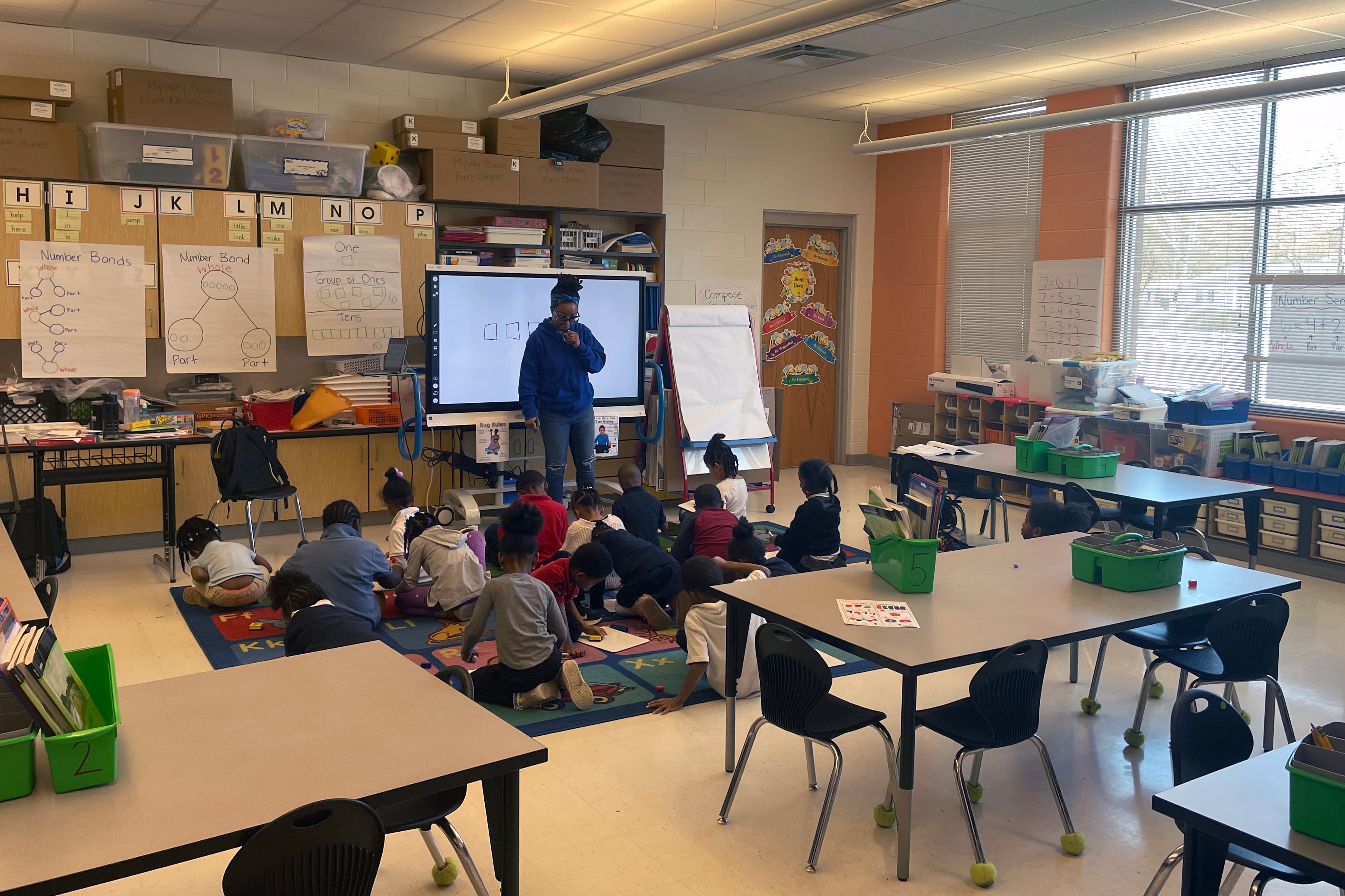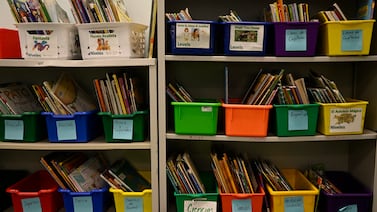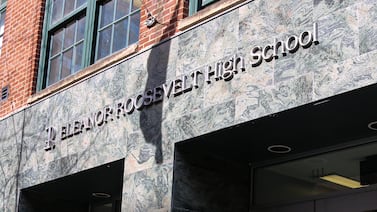Detroit students across charter and traditional public schools performed slightly better on Michigan’s standardized test this spring than a year ago, a reassuring sign for school officials eager to see academic achievement recover after the pandemic.
But local results remained well below the statewide numbers in math and reading, a gap that community advocates said highlights the need to redress historical disinvestment in Detroit education.
The results also spotlight the challenges the Detroit Public Schools Community District faces now that it has run through its federal COVID relief funding. The district received $1.27 billion in aid, and that money has helped pay for academic recovery work such as expanded tutoring, summer school, and after-school programming. Only some of those initiatives will continue when the federal aid runs out.
Results of the 2023 Michigan Student Test of Educational Progress, known as M-STEP, were released Thursday.
In reading, DPSCD students made small improvements across grade levels, in most cases exceeding pre-pandemic results. In third grade, 12.4% of DPSCD students scored proficient or higher in 2022-23, compared with just 9% the previous year, and 11.9% in 2018-19. Fifth grade reading results remain below pre-pandemic levels, but improved a bit from last year.
On math tests, DPSCD students improved on last year’s results, and topped pre-pandemic results in fourth and sixth grades.
Wide as they are, the gaps in performance between DPSCD and the state appear to be narrowing, particularly among Black, Hispanic, and economically disadvantaged students, who are moving toward the statewide average faster than those demographics across the whole state.
“We are not surprised by this improvement,” Superintendent Nikolai Vitti said. “The significant investments made in our staffing, curriculum, professional development, and school student resources over the years are reflected in these results. We have more work to do, and I want our community to know that the formula we have at DPSCD is working. Results do not lie.”
The results, however, cannot mask how much progress needs to be made to bring Detroit students in line with surrounding districts. Statewide, 43.9% of students scored proficient or higher in reading, and 35% did so in math.
Among charter schools in Detroit, results were mixed.
Detroit Edison Public School Academy saw year-to-year gains in both math and reading, but was still below 2019 results. Math results for grades 4 through 7 declined, while third grade saw an increase.
Detroit Enterprise Academy surged above its pre-pandemic results in math: The biggest gain was for seventh grade, where 32.9% of students were proficient in math, compared with 15.3% in 2019. However, reading results in many grades lagged behind pre-pandemic levels.
At Detroit Innovation Academy, fourth and seventh graders made improvements in math, with proficiency rates of 6.8% and 11.1%, respectively. Reading results for grades 3 through 6 were all below 2019 results.
Local education advocates said that despite the improvements, the 2023 results signal that more investment is needed to close gaps in Detroit and accelerate the recovery from the pandemic.
“I think we should be grateful that these scores were not lower, said Christine Bell, executive director of Urban Neighborhood Initiatives, adding that “it’s criminal that before the pandemic less than 50% of our kids were reading at grade level.”
Peri Stone-Palmquist, executive director of the Student Advocacy Center of Michigan, said Thursday’s results were a call for state legislators to pass literacy bills and “invest more deeply in equity, high quality tutoring, and special education supports.”
Education Trust-Midwest, an education research and advocacy organization, said the results pointed to “persistent opportunity gaps for our most underserved students, including Black and Latino students, students with disabilities and students from low-income backgrounds.”
There is more money coming, even with the loss of federal COVID relief aid, which districts have a year left to spend.
Michigan’s new school aid budget includes funding for early literacy and expansion of pre-K programming, and increased funding for special education students and at-risk students.
Districts can also apply for a share of a new $150 million state program to fund tutoring and other academic support initiatives. The funding is based on how many students are considered to not be proficient on statewide assessments.
Among the measures DPSCD has budgeted for is the placement of academic interventionists at select schools. Those educators will work closely with students struggling in reading and math, and are funded in part by a $20 million donation DPSCD received from billionaire MacKenzie Scott last fall. Individual schools also had the option going into this school year of using their Title I dollars to fund after-school tutoring.
The biggest boost for DPSCD will be the $94.4 million it received from the state to settle a 2016 lawsuit that claimed the state denied Detroit schoolchildren proper instruction in reading. The funds are dedicated to programs that support literacy.
Vitti has said he would like to use the money to hire more interventionists, increase literacy support for high school students, and expand teacher training on how to help students who are several grades below reading level.
Ethan Bakuli is a reporter for Chalkbeat Detroit covering Detroit Public Schools Community District. Contact Ethan at ebakuli@chalkbeat.org.
Micah Walker is a reporter for BridgeDetroit, where she covers arts, culture, and education. Contact Micah at mwalker@bridgedetroit.com.







